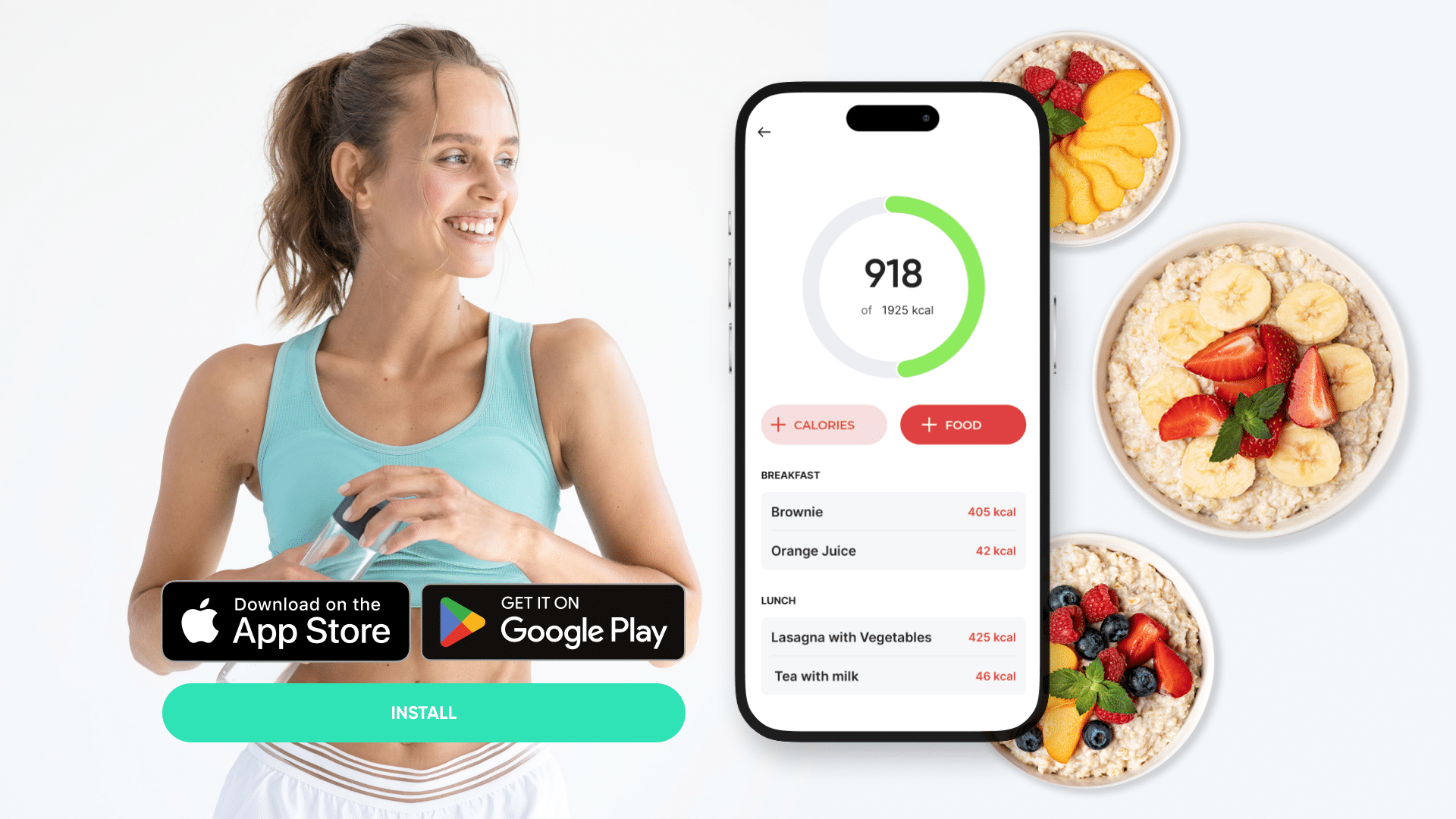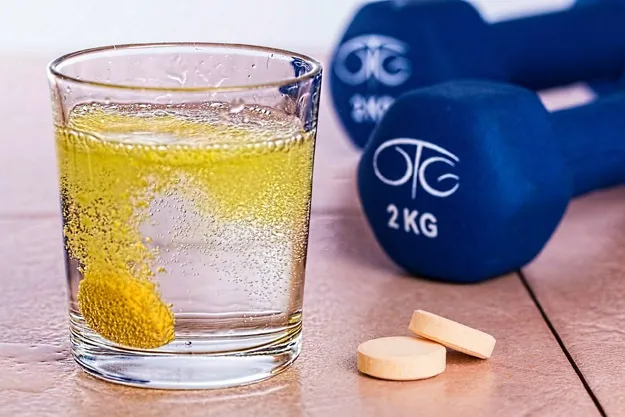There’s a moment between the snack craving and the self-control. Between the tired afternoon and the skipped workout. It’s in these moments that many people wonder: Am I missing something nutritionally?
Not calories. Not willpower. But maybe a vitamin deficiency that’s slowing metabolism, increasing cravings, or zapping energy.
While no vitamin melts fat on its own, the right ones can optimize the systems that do—like metabolism, blood sugar balance, hormonal health, and energy production. So if you’re looking for the best vitamins for weight loss, it’s not about chasing shortcuts. It’s about removing barriers your body isn’t telling you about—yet.
Let’s unpack what actually helps, what’s mostly hype, and how to use vitamins as part of a smarter fat loss routine.
Why Vitamins Matter More Than You Think for Fat Loss
Losing weight isn’t just about eating less. It’s about helping your body burn more efficiently, feel full naturally, and recover better between meals and workouts.
Vitamin and mineral deficiencies—especially B12, D, magnesium, iron—are surprisingly common in adults trying to lose weight. And they’re often responsible for:
-
Constant fatigue despite “eating clean”
-
Cravings that hit even when full
-
Sluggish metabolism or plateaus
-
Difficulty building or preserving lean muscle
-
Poor sleep or increased stress eating
You don’t need mega doses. But you do need targeted support if your goal is sustainable fat loss—not just a number on the scale.

The Best Vitamins for Weight Loss (And Why They Work)
These are the nutrients that have clinical backing + real-world results for supporting weight loss-related systems.
1. Vitamin D3
Supports: Hormone regulation, fat metabolism, immune health
Why it helps: Low vitamin D levels are linked to increased belly fat, insulin resistance, and mood disturbances. It also supports leptin, a hormone that regulates satiety.
Use it: 1000–2000 IU daily with food (preferably a meal with fat)
Real-life tip: If you feel hungrier in winter, it may not be the cold—it could be your D levels dropping.
2. B Vitamins (B6, B12, Folate, Thiamine)
Supports: Energy metabolism, appetite regulation, thyroid support
Why they help: B vitamins convert food into energy. Deficiencies can lead to fatigue, slowed metabolism, and even depression-related eating.
Use it: As part of a B-complex supplement, or from whole foods like eggs, leafy greens, legumes, and salmon.
Who needs it most: Women on calorie-restricted diets, vegetarians, or anyone under high stress (which depletes B vitamins faster)
3. Magnesium
Supports: Blood sugar control, stress resilience, sleep quality
Why it helps: Low magnesium is linked to insulin resistance and elevated cortisol. Poor sleep and stress-eating? Magnesium is often the missing piece.
Use it: 200–400mg daily (magnesium glycinate or citrate preferred for absorption)
Best taken: At night, to support deep sleep and reduce nighttime cravings.
4. Iron (with Vitamin C)
Supports: Oxygen transport, muscle function, exercise performance
Why it helps: Iron deficiency leads to fatigue and poor endurance, making workouts harder and recovery slower. Women are especially vulnerable due to menstrual blood loss.
Use it: Only if blood work shows a deficiency. Pair with vitamin C for better absorption.
Caution: Don’t supplement blindly—too much iron can be harmful.

5. Chromium Picolinate
Supports: Blood sugar balance, carb metabolism, appetite control
Why it helps: May reduce sugar cravings and improve insulin sensitivity, especially in people with blood sugar fluctuations.
Use it: 200–1000mcg per day with meals
Often found in: Weight management supplements, sometimes paired with cinnamon extract or alpha-lipoic acid
6. Omega-3 Fatty Acids (EPA/DHA)
Supports: Fat metabolism, inflammation control, brain health
Why it helps: May support fat burning during exercise and reduce the inflammatory response to dieting. Also improves mood and cognitive clarity during weight loss.
Use it: 1000–2000mg EPA + DHA daily (fish oil or algae-based)
Best taken: With meals that include fat for better absorption.
7. Iodine + Selenium
Supports: Thyroid function, metabolic rate
Why they help: The thyroid gland governs calorie burn. If iodine or selenium are low, thyroid hormone production slows, making fat loss harder.
Use it: Only if you don’t get enough from diet (e.g. no seafood, seaweed, Brazil nuts)
Tip: A quality multivitamin usually covers the RDA safely.
How to Know If You’re Deficient (and If You Should Supplement)
Some signs are obvious: fatigue, hair shedding, cold hands, low mood. But others are subtle—like craving salty snacks, poor stress tolerance, or struggling to recover from workouts.
A simple blood panel + symptom tracking gives you the full picture. Ask your provider to check:
-
Vitamin D
-
B12
-
Ferritin (iron stores)
-
Magnesium (RBC, not serum)
-
Thyroid panel (TSH, T3, T4, and antibodies if needed)
If blood work isn’t accessible, you can still start with safe, moderate doses of widely deficient vitamins (like D, magnesium, omega-3s, or B-complex) and track your energy, cravings, and mood over 2–4 weeks.

Real-Life Ways to Add Vitamins Into a Fat Loss Routine
You don’t need a pharmacy in your kitchen. Start with simple, stackable routines:
-
Morning: Vitamin D + B-complex with your protein-rich breakfast
-
Afternoon: Omega-3 with lunch or snack
-
Evening: Magnesium glycinate after dinner or before bed
-
Workout days: Iron (if deficient) + vitamin C post-exercise
-
Craving support: Chromium with carb-heavy meals
Pair your supplements with whole foods that support absorption: leafy greens, lean proteins, nuts, citrus fruits, and fermented foods.
Avoid these mistakes:
-
Taking everything on an empty stomach
-
Combining iron and calcium (they compete for absorption)
-
Using gummies that are mostly sugar
-
Mega-dosing fat-soluble vitamins without lab tracking
Do Vitamins Alone Make You Lose Weight?
No. Vitamins support fat loss—they don’t cause it.
But here’s what they do make easier:
-
Waking up with energy to move
-
Managing hunger without mental gymnastics
-
Keeping metabolism steady despite a calorie deficit
-
Recovering faster so you don’t skip workouts
-
Staying emotionally stable when cravings hit
Used consistently, they help remove internal resistance—so the habits you’re trying to build (eating better, moving more, sleeping earlier) finally stick.
FAQ: Best Vitamins for Weight Loss
Which vitamin is best for fat loss support?
Vitamin D, magnesium, and B-complex are the most commonly helpful for supporting metabolism, energy, and appetite control.
Can vitamin deficiencies slow down weight loss?
Yes. Low levels of D, B12, iron, or magnesium can reduce energy, impair hormone function, and make fat loss harder.
Should I take vitamins on an empty stomach or with food?
Take fat-soluble vitamins (D, E, A, K) with meals that contain fat. Take magnesium and iron with food to avoid GI discomfort.
Do I need supplements if I eat a healthy diet?
Not always—but if you’re in a calorie deficit, or don’t eat animal products, dairy, seafood, or leafy greens consistently, you may still fall short.
Are gummy vitamins effective for weight loss?
Gummies may contain fewer active nutrients and more sugar. Capsules or softgels are usually more complete and better absorbed.
Is it okay to take multiple vitamins at once?
Yes, but some nutrients compete for absorption (iron and calcium, for example). Spacing them out can improve effectiveness.
Can I take vitamins and apple cider vinegar together?
Yes. ACV may support digestion and insulin sensitivity, but avoid taking it at the same time as sensitive supplements like iron or magnesium.
Sometimes the Missing Piece Isn’t Willpower—It’s a Micronutrient
Weight loss is complex. It’s physical, emotional, and biological. And sometimes, when nothing else seems to work, it’s not that you’re doing it wrong—it’s that something subtle is missing.
The best vitamins for weight loss aren’t fads. They’re quiet supporters. The nutrients that fill the gaps between your effort and your outcome.
Start with the basics. Track how you feel. Adjust with curiosity, not pressure.
Because when your body is nourished, your metabolism responds. Your hunger listens. Your energy returns. And the path forward feels less like a fight—and more like a rhythm you can sustain.